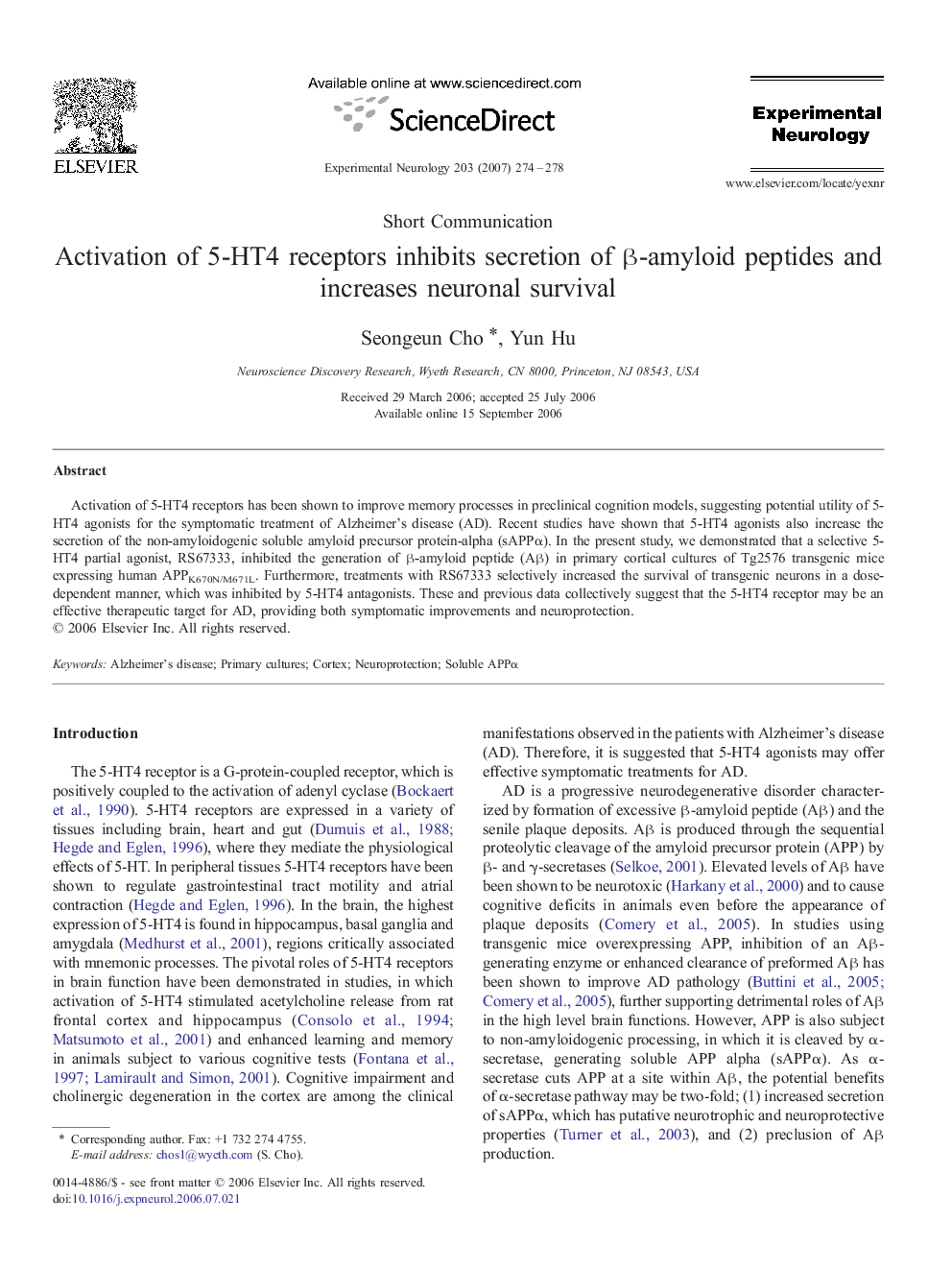| Article ID | Journal | Published Year | Pages | File Type |
|---|---|---|---|---|
| 3056958 | Experimental Neurology | 2007 | 5 Pages |
Activation of 5-HT4 receptors has been shown to improve memory processes in preclinical cognition models, suggesting potential utility of 5-HT4 agonists for the symptomatic treatment of Alzheimer's disease (AD). Recent studies have shown that 5-HT4 agonists also increase the secretion of the non-amyloidogenic soluble amyloid precursor protein-alpha (sAPPα). In the present study, we demonstrated that a selective 5-HT4 partial agonist, RS67333, inhibited the generation of β-amyloid peptide (Aβ) in primary cortical cultures of Tg2576 transgenic mice expressing human APPK670N/M671L. Furthermore, treatments with RS67333 selectively increased the survival of transgenic neurons in a dose-dependent manner, which was inhibited by 5-HT4 antagonists. These and previous data collectively suggest that the 5-HT4 receptor may be an effective therapeutic target for AD, providing both symptomatic improvements and neuroprotection.
